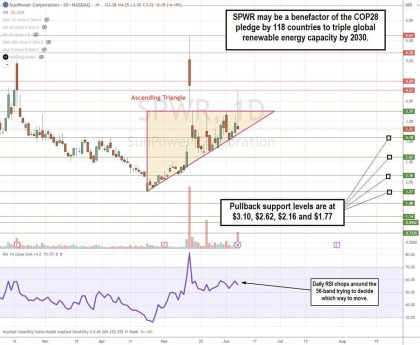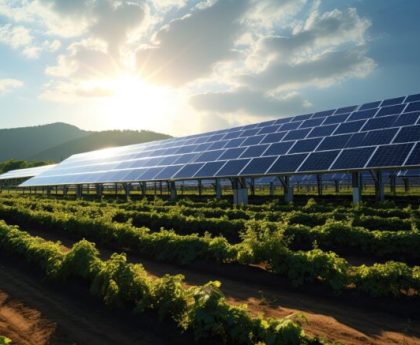First Solar and Qcells, the two largest solar-panel manufacturers in the U.S., have joined a coalition of domestic suppliers calling for new tariffs on below-cost and state-subsidized panels imported from Cambodia, Malaysia, Thailand, and Vietnam.
The coalition, calling itself the American Alliance for Solar Manufacturing Trade Committee, is filing petitions today with the U.S. International Trade Commission and the U.S. Department of Commerce. The cases are intended to spur an investigation into the trade practices of manufacturers in those four countries and the extent to which they are harming the U.S. solar industry.
There have been a number of solar trade cases in the last decade — including the infamous Auxin Solar case in 2022 — but the current effort is notable for the involvement of First Solar and Qcells in the petitioning alliance. First Solar will have 14 gigawatts of vertically integrated U.S. solar-manufacturing capacity by 2026, according to the firm. Qcells expects its total production in Georgia to hit 8.4 gigawatts in 2024 across all layers of the supply chain — from polysilicon to wafers, cells, and the final panels, also known as modules. These are by far the largest players in the U.S., whereas earlier trade cases have been filed by less consequential solar manufacturers.
The case has wide support within the U.S. solar manufacturing industry, which has been in the midst of a revitalization since August 2022, when the Inflation Reduction Act was passed, authorizing significant subsidies for the sector. The other petitioners in today’s filing are Convalt Energy, Meyer Burger, Mission Solar, REC Silicon, and Swift Solar.
But the broader solar industry is split. Project developers who benefit from low-cost solar modules are opposed — as are prominent groups representing the solar and clean energy industries.
“Today’s filing creates market uncertainty in the U.S. solar industry and poses a potential threat to the build-out of a domestic solar supply chain,” wrote the Solar Energy Industries Association, American Clean Power Association, Advanced Energy United, and American Council on Renewable Energy in a joint statement.
The Biden administration’s target of 80 percent carbon-free power generation by 2030 and 100 percent by 2035 is highly dependent on the aggressive growth of solar — and that growth could be throttled by new tariffs that raise prices on solar panels.
Pushing back against China
The new cases are aligned with recent trade-policy chatter from the Biden administration, which has been pressing the need to enforce trade laws and address Chinese dumping, in particular in the renewable energy sector. Last month, Treasury Secretary Janet Yellen gave a high-profile speech from a previously shuttered solar manufacturing facility in Georgia, warning about China’s “excess capacity” of solar panels, as well as electric vehicles and batteries.
In order to get around American tariffs, Chinese panel manufacturers have moved a significant amount of production to four Southeast Asian countries — Cambodia, Malaysia, Thailand, and Vietnam. The companies continue to receive support from the Chinese government.
The coalition of manufacturers is accusing the four Southeast Asian countries of dumping, or selling a product in the U.S. for less than a company sells it for in its home market or less than its full cost of production. It’s illegal under U.S. law and World Trade Organization rules. The coalition is asking the U.S. government to impose anti-dumping duties, intended to offset the amount by which a module is sold below its fair value in the United States. It’s also asking for countervailing duties, intended to neutralize unfair subsidies provided by foreign governments to manufacturers such as financial contributions, low-interest loans, or discounted inputs like power or raw materials.
“We’ve seen pricing at extremely low and unsustainable levels around the world, as low as 10 cents per watt … And here in the United States, … between 15 and 20 cents per watt and heading lower,” said Tim Brightbill, the lead attorney representing the petitioning manufacturers and partner and co-chair of the trade practice at law firm Wiley Rein. “China and Chinese-owned companies are manipulating our domestic market to benefit their economy and national security interests,” he said on a press call.
Due to the glut of inexpensive imports from these countries, the United States now has an oversupply of solar panels, 30 gigawatts currently cloistered in warehouses, according to Brightbill.
“Nearly all of this capacity sitting in warehouses today was produced by Chinese-owned or China-headquartered companies,” he said.
This post was originally published on 3rd party site mentioned in the title of this site





